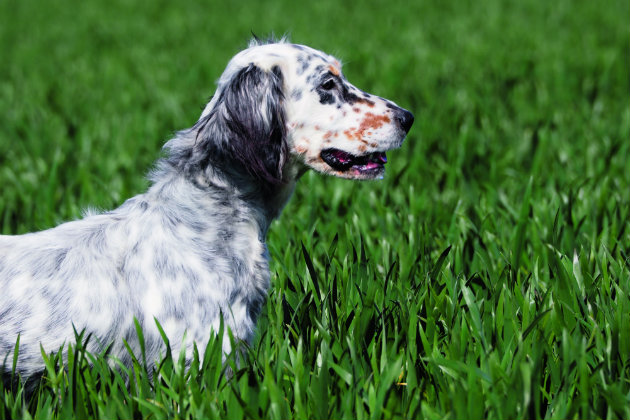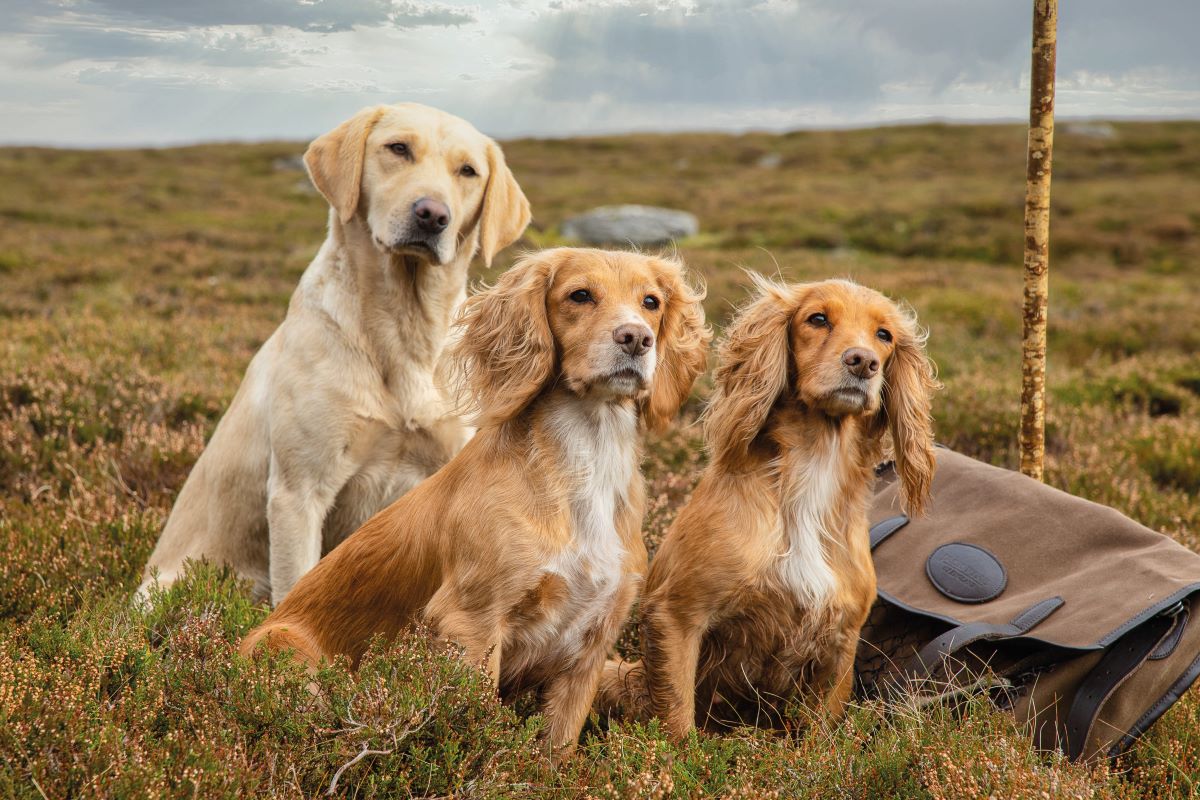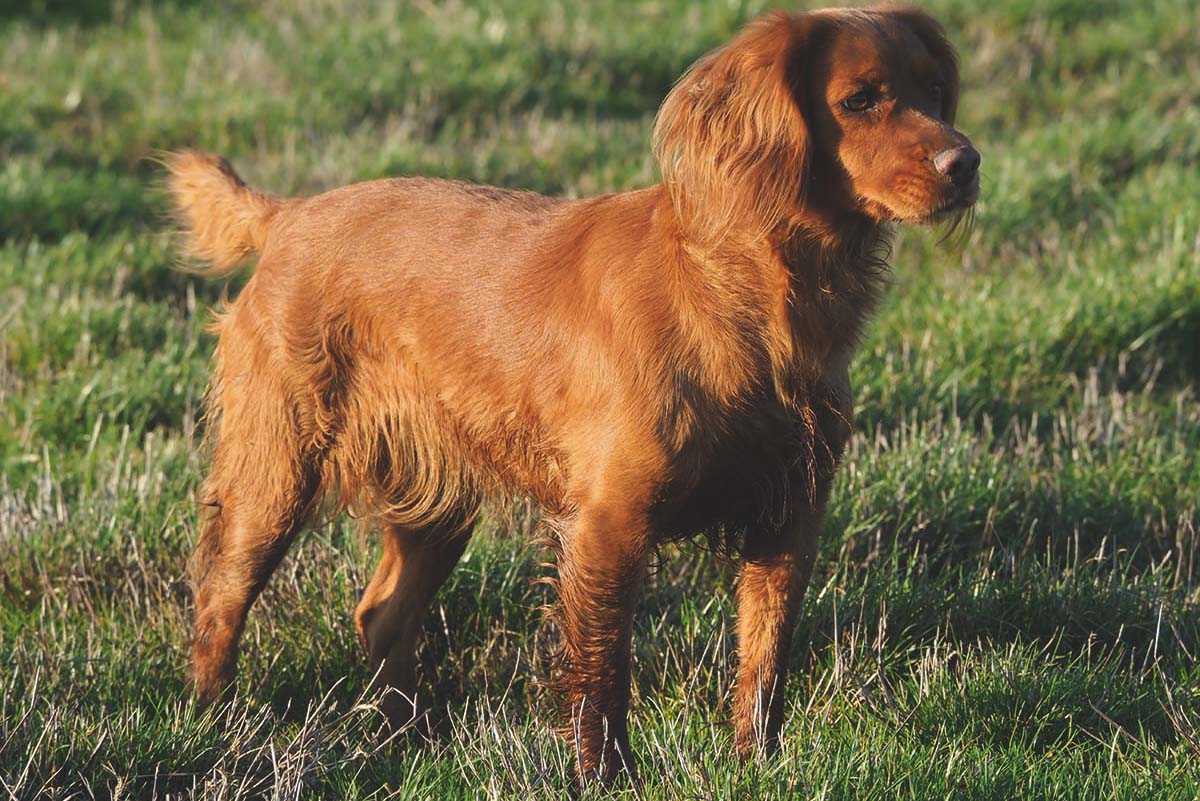Passing over pedigrees?
Is it time the Kennel Club opened up to cross-breeds, asks David Tomlinson?

English setters are one of several breeds that are known to suffer from inherited Exocrine Pancreaetic insufficiency
EARLIER THIS MONTH The Telegraph asked readers to vote online for their favourite breed of dog, which they did in impressive numbers. More than 30,000 votes were cast during the four days the poll was open. Its results make fascinating reading, for in the number one slot wasn’t a breed at all, but two cross-breeds.
In third place was the spaniel
The cockerpoo and Labradoodle shared first place, gaining 1,000 more votes than the greyhound, which surprisingly was placed second. In third place was the spaniel, with no differentiation made for springers and cockers, while the Labrador/retriever took fourth slot. The poll results failed to make it clear whether the Labrador was lumped with the golden retriever, but I expect so.
In fifth place was the collie, followed by the beagle, German shepherd, setter, dachshund and pointer. It’s a rather curious mixture of breeds, and doesn’t reflect recent Kennel Club (KC) registrations. The KC’s most recent top 10 includes the pug (No. 4), French bulldog (No. 7), bulldog (No. 9) and Staffordshire bull terrier (No. 10). I’m agreeably surprised to see the first of these three breeds unplaced, as they all suffer from respiratory problems due to the demands of the show ring. As for the absence of the Staffie, well, it was a Telegraph poll. I’m sure one in The Sun or Daily Mirror would have come up with very different results.

The Labradoodle topped the poll of popular breeds
Readers voted for favourite breed but not the breed they owned
It’s also worth noting that the poll only asked readers to vote for their favourite breed, not the breed they owned. Many of those who voted for the greyhound, for example, may have simply been admirers of these elegant hounds, though I doubt if they were greyhound-racing enthusiasts. The high placing of the beagle probably comes from readers recalling dogs from their childhood. Fifty years ago beagles were popular pets, but they have a much smaller following these days. I always remember Peter Moxon telling me that he wouldn’t wish a beagle on his worst enemy. Peter knew beagles well, as he house a pack at his kennels at Redditch.
I’m intrigued, too, whether the “pointer” in 10th position includes all dogs with pointer in the name, ranging from our native pointer to the more popular and numerous German shorthair. I can’t remember when I last saw a pet English pointer. Like beagles, pointers require lots of exercise and don’t generally make great pets.
However, while allowing for the biased nature of the poll, the result is an interesting one, for it’s another indication that the cult of the pedigree dog is declining. The fact that poodle-gundog crosses came an emphatic first is a sign of the times. I’m not sure whether the start of the rot for the Kennel-Club pedigrees started with the screening of the BBC’s ground-breaking programme Pedigree Dogs Exposed in 2009, but I suspect that it played a major part.
A lucrative monopoly
For years the working gundog world has been in the stranglehold of the Kennel Club. The latter holds the monopoly of all serious gundog competitions, and participation is impossible if your dog isn’t registered. I’ve no doubt that if you attempted to set up a rival spaniel championship, genuinely open to any varieties including sprockers, the KC would bar any handlers who were brave enough to take part from entering its own events. You can be equally confident that if any KC panel judges were misguided enough to officiate in such a competition they would be fined by the club’s disciplinary committee.

It costs a breeder £16 to register a puppy, such as this Hungarian wirehaired vizsla, with the Kennel Club
You can understand the KC’s reluctance to have anything to do with unregistered dogs. The club’s finances depend on dog registrations, of which it has the monopoly, and a very lucrative one, too.
It currently costs £16 to register a puppy, though members of the Kennel Club Assured Breeders scheme get a modest discount, bringing the price down to £14. If the new owner wants to change a puppy’s kennel name within three months of the initial registration, then that’s another £30. The KC justifies these charges by explaining that the money goes to “research into illness and inherited conditions, providing grants to canine causes through the Kennel Club Charitable Trust, lobbying Government to prevent negative canine legislation and maintaining breed standards”. It also allows the club to have its headquarters in Clarges Street in Mayfair, one of the most expensive and exclusive parts of London.
Every now and again someone suggests that BASC, rather than the KC, should take over running gundog trials and tests. It would certainly make sense, as BASC is primarily a shooting organisation, whereas the KC’s chief concern is showing dogs rather than working them. However, BASC has never displayed the slightest enthusiasm for such a proposal, which isn’t surprising in view of the amount of extra work it would entail.
It’s possible that the decline in interest in pedigree dogs will threaten the future of the KC. It might react to its falling income by concentrating on its core interest of showing, at the expense of peripheral activities such as field trials, or by inviting the Labradoodle, the cockerpoo and other cross-bred dogs into its fold?








